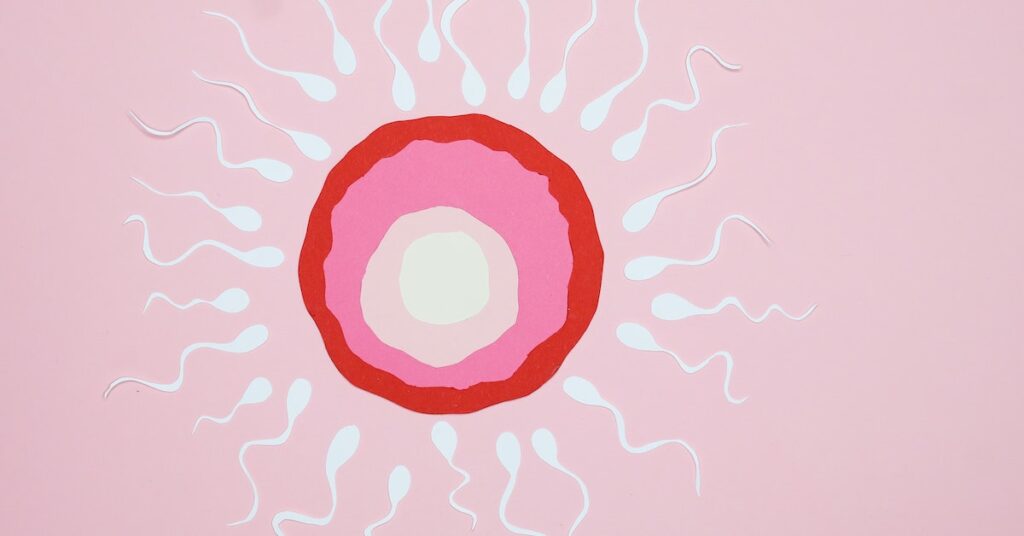What should You Know About Infertility?

Infertility is a health difficulty moving thousands of things in general. It is outlined as the defeat to create an individual period of constant, unprotected intercourse contact. While infertility is more frequently associated with women, men can also suffer from it.
Infertility is a healing question that influences about 15% of couples everywhere. It is described as being unable to become pregnant after one year of trying or being unable to carry a pregnancy to term. While infertility can be a source of emotional and physical stress for those affected by it, it is important to know that there are options available for those seeking to have a family.
Infertility Causes:
There are many potential causes of unproductiveness, and it can influence both people in the community.
- In about one-third of cases, infertility is caused by a problem with the man, such as a low sperm count or abnormal sperm function.
- In another one-third of cases, the problem lies with the woman, such as problems with the fallopian tubes or ovulation disorders.
- There are many likely causes of infertility, containing hormonal imbalances, fundamental anomalies, and absolute medical circumstances. In a few cases, the cause of infertility is mysterious. The staying cases can stem by a mixture of determinants or by unknown causes.
Symptoms of Infertility:
The syndromes of unproductiveness can change widely contingent upon the latent cause. Some accepted manifestations of unproductiveness in women involve:
- Irregular or missing menstrual periods
- Difficulty catching pregnancy
- Painful periods
- Heavy periods
- PMS symptoms that are more severe than usual
Men may experience the following symptoms of infertility:
- Difficulty maintaining an erection
- Difficulty achieving orgasm
- Pain or discomfort during intercourse
- Decreased sex drive
- Ejaculation problems
It is important to note that not all people with fertility issues will experience symptoms. In a few cases, infertility is only found when a couple is difficult to understand and is failing.
Diagnosis for Infertility:
There are several potential causes of infertility, and it is important to get a proper diagnosis in order to determine the best course of treatment. The first step in diagnosing infertility is to undergo a thorough medical evaluation. This will typically involve a physical examination, as well as blood and imaging tests to assess overall health and look for any underlying conditions that may be contributing to infertility.
- For women, the evaluation may include testing of the fallopian tubes and uterus, as well as hormonal testing to check for imbalances or other issues.
- Men may be tested for sperm count and motility (movement) to determine if there are any issues with sperm production or function.
- In addition to these general tests, there may also be specific tests to identify the cause of infertility. For example, a woman may undergo a laparoscopy to check for endometriosis or other conditions that can affect fertility, or a man may undergo a vasectomy reversal to see if it is possible to restore fertility.
Treatment for Infertility:
Once the cause of the infertility has been determined, treatment options can be discussed.
In Vitro Fertilization (IVF):
These options may include medications to stimulate ovulation or to improve sperm production, surgery to repair reproductive organs, or assisted reproductive technologies such as in vitro fertilization (IVF)In vitro fertilisation (IVF) is a process at which point cells are fertilised accompanying semen in a testing room setting and the effect embryos are moved to the uterus.
Surgery:
Surgery may be recommended to correct structural abnormalities or to remove blockages that are preventing pregnancy. Laparoscopy, a minimally invasive treatment used to evaluate the reproductive organs, is one common operation. A minuscule cut is created in the intestinal obstruction to put a laparoscope (a thin, illuminated tube accompanying a camcorder on the end). The laparoscope allows the doctor to view the reproductive organs and identify any problems that may be causing infertility.
Hysteroscopy is another form of surgery that may be used to treat infertility. This treatment is performed to look inside the uterus for any abnormalities that may be impeding conception. A narrow, illuminated tube accompanying a camcorder on the end is passed through the cervix and into the uterus all along a hysteroscopy. The doctor can then view the inside of the uterus and identify any problems that may be causing infertility.
Surgery may be done in some circumstances to repair or eliminate damaged or defective reproductive organs. A wife, e.g., can sustain abscission to remove broken fabric or endometriosis (a condition at which point tissue that usually lines the uterus evolves outside of it). A male may have varicocele correction surgery (a situation in which the veins in the scrotum become enlarged and twisted).
It is critical to remember that surgery is not always an effective treatment for infertility. The success rate of surgery depends on the cause of the infertility and the specific type of surgery being performed. In some cases, additional treatments, such as fertility medications or in vitro fertilization (IVF), may be needed in combination with surgery to achieve a successful pregnancy.
If you and your partner are experiencing infertility and are considering surgery as a treatment option, it’s important to discuss the potential risks and benefits with your doctor. Your doctor will be able to provide you with more information about the specific type of surgery that may be recommended for your situation and help you understand what to expect before, during, and after the procedure.
Medication:
There are several different types of fertility drugs that can help regulate a person’s hormones and increase the chances of pregnancy. Some examples of these drugs include clomiphene citrate, gonadotropins, and metformin. These medications are usually taken orally or injected, and they work by stimulating the production of eggs in the ovaries or by regulating the menstrual cycle.
Assisted Reproductive Technology (ART):
ART involves the use of medical procedures to help people with infertility achieve pregnancy. In vitro fertilization (IVF), female reproductive cell intrafallopian transfer (GIFT), and zygote intrafallopian transfer are all examples of ART methods (ZIFT). These procedures involve the fertilization of an egg outside of the body, followed by the transfer of the fertilized egg back into the uterus.
It is important to note that infertility treatments are not always successful, and some couples may need to consider alternative options such as adoption or surrogacy. It is also important for individuals and couples facing infertility to seek emotional support, as the experience can be emotionally taxing. Support groups and remedy may be advantageous in this regard.
Lifestyle Changes:
In addition to seeking medical treatment and emotional support, there are also lifestyle changes that can improve fertility. For men, quitting smoking, reducing alcohol consumption, and maintaining a healthy weight can all improve sperm quality. Women can increase their productivity by upholding an active burden, preventing cigarette and extreme intoxicating use, and directing stress.It is likewise main for both men and women to watch their overall strength and happiness. This includes getting enough sleep, exercising regularly, and following a healthy diet. Some research has suggested that certain nutrients, such as folic acid and zinc, may be important for fertility. It is also important to take steps to improve your overall health, as this can help increase your chances of conceiving.
Infertility can be a challenging and emotional experience, but it is important to remember that there are options available. Seeking medical advice and making lifestyle changes can improve fertility, and there are also alternative options such as adoption and surrogacy. It is also important to inquire about psychological support all the while in the past. With the right support and treatment, it is possible for individuals and couples facing infertility to achieve their dreams of having a family.
Takeaway:
If you are worried about your fertility, you should see a doctor. They can help you determine the core cause of your generating issues and approve predicament solutions. Medication, abscission, or helped generative sciences to a degree artificial fertilisation can be secondhand as situation opportunities (IVF).
If you are experiencing infertility, it is critical to understand that you are not alone. There are many resources and support groups available to help you through this challenging time.





